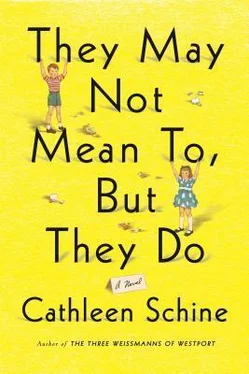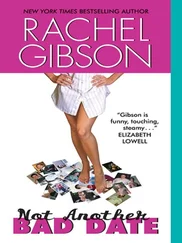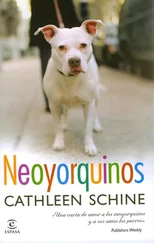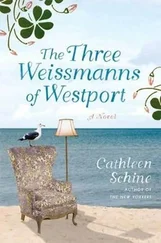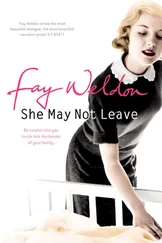“You’re not an old ruin. You’re still working, for heaven’s sake. You take care of Dad all by yourself. I don’t know how you manage, honestly. And you look beautiful, too. Old ruin. That’s a joke.”
“Well”—Joy was obviously mollified—“I am old.”
No one at work knew her real age. Eighty-six. That would give them a jolt, all those potbellied men planning their retirements at sixty-five. Of course, she couldn’t afford to retire even now. She’d cut back to part-time since Aaron got so sick, which was hard enough on the finances.
“I only work three days a week,” she added.
“That’s plenty.”
“Plenty of tsuris .”
The room that had once been Molly’s was now her mother’s office and her father’s study. Those were the terms used by them both, and if an office is a place where you store cardboard boxes of unopened mail and a study is where you sit between spires of those boxes on a convertible sofa and listen to your transistor radio, then those terms were accurate.
Molly transferred the piles of boxes from the sofa to the floor, leaving a little path to the door, and began removing the sofa’s newly visible pillows before she realized that other towers of boxes on the floor would prevent the mattress from unfolding.
“Oh well,” Joy said. “Storage is a problem in New York City. Sleep in Danny’s room.”
Daniel’s room had originally been a maid’s room, a remnant from the days when the building had been built, the days when families had maids. The room was so narrow that the only bed that would fit there was a special narrow maid’s-room bed sold, once upon a time, in some of the better New York department stores. This one was very old, perhaps forty years old, lumpy and somehow inviting. Daniel had always loved his room, fixing it up like a cabin on a boat. In fact, he had made it so cozy and inviting that Molly had tried to get him to switch with her, but he had contemptuously refused. Aaron called it the Nookery, a Dickens reference, he said, and that had clinched it for both children: Daniel had the best room in the house. It even had its own bathroom, the size of a phone booth, with a toilet and a skinny shower. The sink was in the bedroom, which Daniel one day announced was very European, enraging Molly, who was stuck in her conventional American bedroom with its big closet and large windows facing the tree-lined street. The small window at the head of Daniel’s maid’s-room cot faced another building, but he had managed to make a friend across the air shaft and they rigged up a pulley system and paper cup telephone, so even that turned out to be an advantage.
Molly pulled the old cotton quilt around her. She felt far away, missing Freddie, and she felt comfortably at home. Outside, an ambulance went screeching along somewhere in the distance.
She heard her mother padding around in the kitchen, the pop of the toaster, the refrigerator door opening, closing. She would have to check the refrigerator tomorrow, search for the squalid, liquefying slices of tomato, the curled, desiccated turkey slices she knew would be tucked up somewhere in there. She had to make sure her parents were eating properly. There were boxes of Vienna Fingers and saltines on the counter. Minute Rice. Rice Krispies. Cream of Wheat. If it was an empty calorie, her parents were sure to stock it. But she had also seen a banana and a few oranges in a bowl. A good sign. She had tried once to arrange a regular delivery of decent produce through an organic food website. It had not been a success. Her mother did not like the dirt on the vegetables. Her father did not like the irregular shapes. Neither of them liked rutabagas.
* * *
Molly had come a week earlier than either Freddie or Ben, neither of whom could get to New York until Thanksgiving Day, and Joy was glad. It gave her a little time to be alone with her daughter. From the kitchen table, she watched with pleasure as Molly grabbed parcels from the refrigerator and threw them into a large garbage bag.
“Mom, this is disgusting.”
Joy nodded. Molly’s movements, so abrupt and assured, charmed her. It was as if Molly were a little girl, a busy, officious little girl, as she had sometimes been, bossing her brother around, arranging the spices in the kitchen alphabetically as soon as she learned the alphabet.
“It’s wonderful to have you here,” Joy said.
Molly looked up from the garbage bag. She smiled.
“I miss you terribly,” Joy said.
The smile faded. “That makes me feel kind of guilty, Mom.”
“Would you prefer that I didn’t miss you?”
Molly pondered that. “I don’t know. Maybe. No.”
“Good. Because I do, whether you like it or not.”
She watched Molly spray the kitchen table with Fantastik and scrub it vigorously with a sponge, her elbows almost banging into Joy’s face.
“Should I move?”
“You’re okay.”
Joy did not offer to help. Molly did not like help. Joy watched her with growing satisfaction. The chemicals in the spray made her eyes sting, but she said nothing. The sticky circles left by teacups and jam jars disappeared. Molly gave her a quick kiss on the head as she put back the saltshaker, the sugar bowl with one of its handles broken off, the portable radio, then quickly took them off again and scrubbed them, too. She scrubbed the blackened windowsill.
“That will never come off,” Joy said.
“I miss you, too, you know,” Molly said.
“I should hope so.”
Joy listened to the water run as Molly took a shower in Danny’s minuscule bathroom. There was life in the apartment, echoes of her old life, echoes of life before she was old.
“Aaron,” she said that night as she tucked him in, wrapping her arms around him and pressing her face against the back of his head, “I love you.”
He said, “I love you, too, my darling.”
The words echoed in the apartment full of echoes.
* * *
Joy left for work at 9:30. She never knew what she would come home to, but Aaron tended to sleep during the day and never went near the stove, so she told herself. She was a conservation consultant for a small museum on the Lower East Side that specialized in Jewish artifacts. It was, she had once observed, years ago, not unlike Hitler’s Museum of an Extinct Race, but with less stuff. Aaron was shocked when she said this. They were in Prague at the time, entering a museum beside the old synagogue, a museum that was piled with candlesticks and spoons and silver spice boxes stolen from Jews by the Nazis and stockpiled in anticipation of Hitler’s museum.
“Joyful, darling, a little perspective,” Aaron said.
A museum like hers was a record of the past, not a trophy of genocide, certainly that was true. But Time was so cruel and so thorough. It made her sad sometimes as she examined her own museum’s jumble of dented tin pushkes , Sabbath candlesticks brought from the Old Country, telegrams, newspapers, photographs, the wheel of a pushcart, a deck chair from the Catskills. Where did they belong now? Nowhere. It was an extinct world that passed through her hands and into the Lower East Side Museum. Joy would examine each item donated to the museum or acquired, each fragment of this lost world, to determine if it deserved to be found or to be lost again, to be tossed back quite literally onto the dust heap of history. This choosing which item lived and which died, so to speak — that was the part of her job she did not relish, separating the wheat from the chaff.
“Who am I to judge?” she said to Aaron. “If the pope said that about his flock, is it any wonder I feel that way about my flock of artifacts?”
“I don’t know how to tell you this, my love, but you are not the pope.”
Joy wanted to save everything, every scrap, as if it were a soul. A museum was not a warehouse, however, and a conservator was not a hoarder. Collections had priorities, strengths. Every Houdini flyer did not need to be preserved. One Houdini flyer was quite enough. Yet she had been trained to save, not to choose.
Читать дальше
